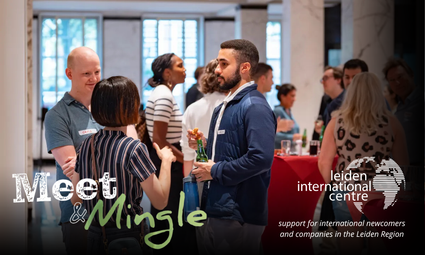If it's your first time looking for a job in the Netherlands, you might feel a bit lost: this page is for you.
The right resources
First things first, be sure to have your CVs and motivation letters ready for your next application. You can find more tips on how to prepare for your job application at these websites
You don't know where to find suitable job offers? Visit our Job Boards page!
International job boards
Networking in Leiden - To find the right job you must know the right people.
Learning Dutch
A good skill to succeed in the Dutch job market is speaking Dutch. Even when the language is not required for the listed position, it can become important when growing your career. Many senior positions might require Dutch, and knowing the language is also important to build a strong network – within and outside your company.
According to Nuffic, about a third of the employers experiences language barrier when working with international talent, and 60% finds that Dutch is important for social interactions at work. Surely knowing Dutch will make you stand out.







